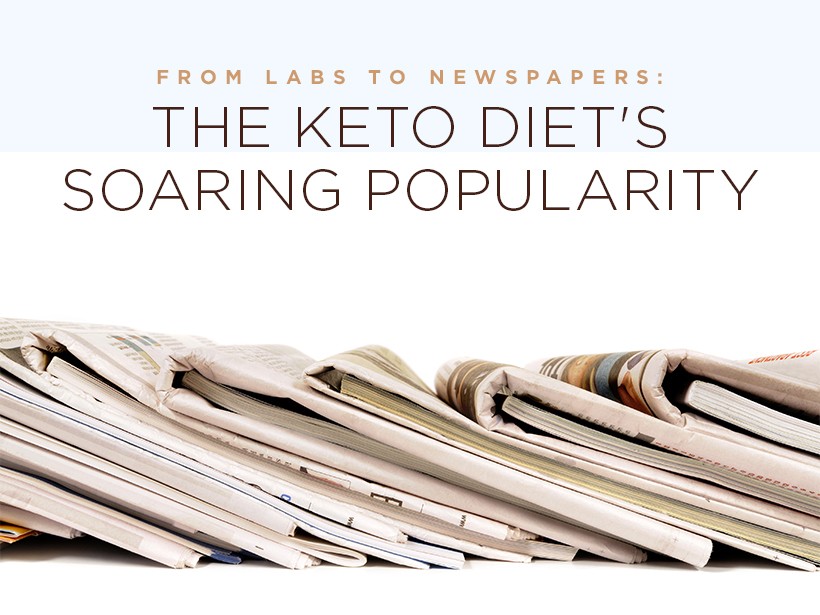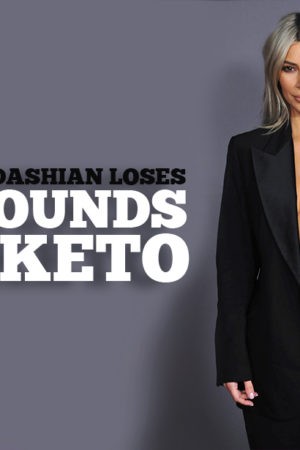It’s impossible to argue: keto has taken off to become one of the world’s most popular diets. In 2018, keto took first place as the most-queried diet on Google Search. According to a survey of over 2,000 dietitians around the globe, the low-carb way of eating skyrocketed in popularity last year and is the third most popular international eating plan. And if the latest life-extending, looks-enhancing obsessions in Hollywood hold any sway for you, then you’ve probably heard this all before. In the world of ever-shrinking waistlines and ageless glamour, keto is king.
The mainstream buzz on keto
The exciting thing for low-carb advocates is that all this popularity is translating into some serious coverage. The New York Times' style section recently turned its sights on keto and liked what it found.1 The verdict? Ketosis is “trending up, way up.” More than this, however, they found good reason to ignore critics of a low-carb lifestyle, turning to some of the same research that we’ve used here at SoNourished and Tasteaholics to demonstrate the advantages of a keto diet.
In addition to listing some of the very public celebrity keto transformations (for example, Al Roker, heart and soul of the TODAY show, lost a clean 40 pounds on keto), the New York Times references an excellent guide for dispelling some of the worst keto myths. Nina Teicholz is a science journalist, NYU professor, and 10-year keto dieter whose fantastic blog pits her professional and personal experience against common keto rumors, myths, and misconceptions. At the end of her piece, Teicholz also poses some interesting questions about why these rumors crop up, and possible ulterior motives to be aware of in some of the research and reporting on keto.2
Unbiased research to back it up
Thankfully, it’s not only mainstream news outlets like the New York Times and the Philly Voice3 that are spreading the word. As low-carb living grows in popularity, mountains of research are piling up that demonstrate the benefits of the diet. This means you don’t have to take Al Roker’s, Lebron James's, or even my word for it: if you’re interested in keto, it’s easy to do your own research and come to a smart decision. Studies on low-carb diets, like this recent one in the British Medical Journal (also cited in the New York Times),4 are a great place to start.
NUTRITIONAL DISCLAIMER
The content on this website should not be taken as medical advice and you should ALWAYS consult with your doctor before starting any diet or exercise program. We provide nutritional data for our recipes as a courtesy to our readers. We use Total Keto Diet app software to calculate the nutrition and we remove fiber and sugar alcohols, like erythritol, from the total carbohydrate count to get to the net carb count, as they do not affect your blood glucose levels. You should independently calculate nutritional information on your own and not rely on our data. The website or content herein is not intended to cure, prevent, diagnose or treat any disease. This website shall not be liable for adverse reactions or any other outcome resulting from the use of recipes or recommendations on the Website or actions you take as a result. Any action you take is strictly at your own risk.
- California Pushes for Cigarette-Like Warning Labels on Soda - July 1, 2019
- Is a Slowdown in Australia's Sugar Consumption a Sign of More to Come? - June 24, 2019
- Groundbreaking Study Says the Sugar Rush Doesn't Exist - June 12, 2019































